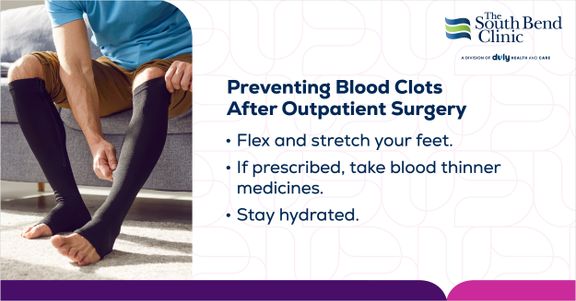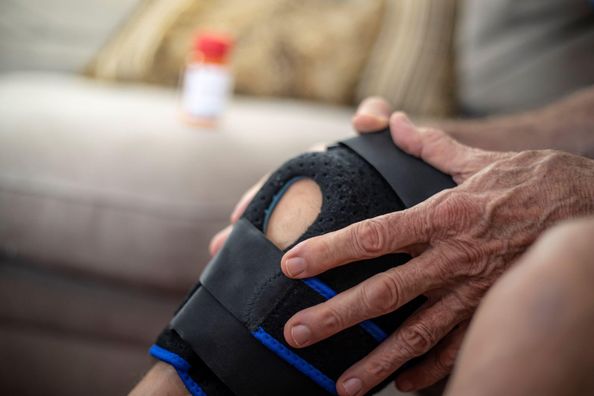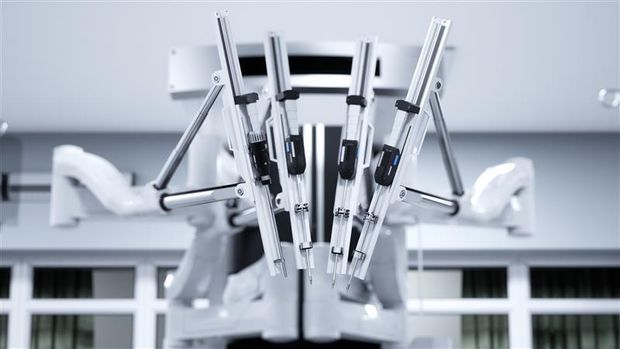When your provider tells you that you need orthopedic surgery, your mind might jump to packing your bag and spending the night in a hospital bed. But while inpatient surgery (a procedure that requires an overnight hospital stay) is still used for some procedures, it’s actually more likely that you will be having outpatient surgery.
Outpatient, or same-day surgery, is where you get to go home the day of the procedure. It’s extremely common – in fact, more than 70% of surgeries in the US are performed on an outpatient-basis, and orthopedic outpatient surgeries are becoming increasingly more common. These surgeries are safe, effective, and generally less expensive than inpatient ones. And one of the best parts is that you get to recover in the comfort of your own home.
The idea of going home right after surgery may be a relief, but it’s normal if it also makes you a little nervous. You might be unsure of what to expect during recovery and how to stay safe as you heal.
Learning about recovering from same-day surgery ahead of time can help set you up for a successful recovery – and also make surgery a little less stressful.
Before Same-Day Surgery
The recovery process doesn’t begin the moment you get out of surgery – it actually starts before the procedure even begins. There are several things to knock off your checklist before your appointment.
Find Someone to Stay With You After Surgery
Being alone after surgery isn’t a good idea, especially if you had general anesthesia (medication to put you in a sleep-like state during surgery) or another form of sedation. Having company isn’t just for comfort or help moving around – it’s also for safety. If you have a bad reaction to medication or injure yourself, having someone else there is critical for getting the help you need.
Make sure that you have a safe ride home and that someone can stay with you for at least 24 hours. Let them know of any signs they should look out for that could indicate that they need to get help.
Set Up Your Home
Depending on the type of procedure, you may need to make some adjustments to your living space. For example, if the surgery could make it difficult to use the stairs, you may need to temporarily trade your upstairs bedroom for somewhere on the first floor. If the surgery could affect your ability to stretch out your arms, it may be beneficial to move objects that you regularly use off of shelves.
Other ways to prepare your home ahead of time include:
- Preventing falls (eg., removing rugs or tripping hazards like cords)
- Shopping for groceries beforehand
- Making sure entrances to the house and bathrooms are clear
- Having everyday objects like phone chargers or remote controls easily accessible
- Laying out comfy clothes so you don’t have to dig through drawers
Read on Duly Health and Care: Getting Your House Ready for Total Joint Replacement Recovery
Talk to Your Surgeon About Pre-Surgical Prep
Outpatient surgeries often require some prep work, but try not to stress – it’s usually fairly simple. For instance, depending on the type of procedure, you may need to:
- Avoid shaving in the area of your surgery. If you need to be shaved, the surgical team will take care of it.
- Stop using alcohol or tobacco for 24 hours before the surgery.
- Fast (not eat or drink) for a certain amount of time.
- Refrain from wearing deodorant, lotion, perfume, or antibacterial soap on the day of the surgery.
Let your provider know about any prescription and over-the-counter medications, supplements, or vitamins you take on a regular basis. Some medications may need to be adjusted before the surgery, since certain ones can affect how your body processes anesthesia or pain management medications.
After Same-Day Surgery
If you had general anesthesia or sedation, you will need to spend some time in the recovery room while the medicine wears off. If you only had local anesthesia (medication that numbs a small part of your body and doesn’t affect your consciousness), you can likely go home as soon as you feel well enough.
Once home, the next steps in the recovery process are in your hands.
Closely Follow Discharge Instructions
It’s essential to follow your discharge plan carefully, especially when it comes to medication. Take your medications exactly as prescribed. Taking too much could lead to a dangerous overdose, while not taking enough could leave you in pain.
If your medication is causing side effects, talk to your provider before stopping. They may be able to help reduce side effects or prescribe a different medication.
Physical Therapy
Depending on the type of procedure, your surgeon may recommend physical therapy. In some cases, therapy may begin the same day or the day after your procedure. You may also be instructed to rest and slowly ease back into your daily life.
It’s important to stick with your physical therapy, as well as to follow directions about resting and not doing too much. While it can be tempting to stop therapy or jump back into your everyday activities in full force as soon as you’re feeling yourself again, doing so before your body is ready can stop you from healing correctly.
Read on Duly Health and Care: Understanding Pain Management Options
Prevent Blood Clots
Blood clots are masses of blood cells and other substances that form in your blood vessels. After surgery, you may be at risk for blood clots that form in your veins and block the flow of blood. This is called venous thromboembolism (VTE). VTE clots can wreak havoc on your body, seriously damaging organs, tissues, and veins. They can even block blood to critical areas of your body, like your lungs, which can be fatal.
VTE clots develop after periods of not moving or having inflammation – which is why the risk is high after surgery.
Fortunately, there are several ways to prevent blood clots.

Look Out for Signs That You Need Emergency Care
Recovery from a same-day procedure is very safe – your care team wouldn’t send you home if they weren’t confident that you would be safe there.
However, all surgeries do come with a few risks. Call your surgeon if you have pain that doesn’t go away or gets worse, develop a fever over 101°F, or have continuous vomiting. Know the signs of an emergency, and get medical help right away if you experience:
- Pain, redness, and swelling in your leg that is warm to the touch
- Sudden weakness or numbness in your arms or legs
- Shortness of breath
- Coughing up blood
- Pain in your arm, chest, or upper back
- Severe pain
At Any Time
From planning your surgery to checking in after you’ve recovered, and everything in between, your provider is there for you. Don’t hesitate to reach out any time you have questions or concerns – their goal is to keep you safe and help you feel comfortable as you recover from surgery.
Have questions about an upcoming orthopedic surgery? Reach out to your South Bend Clinic orthopedist or primary care provider.
Health Topics:



